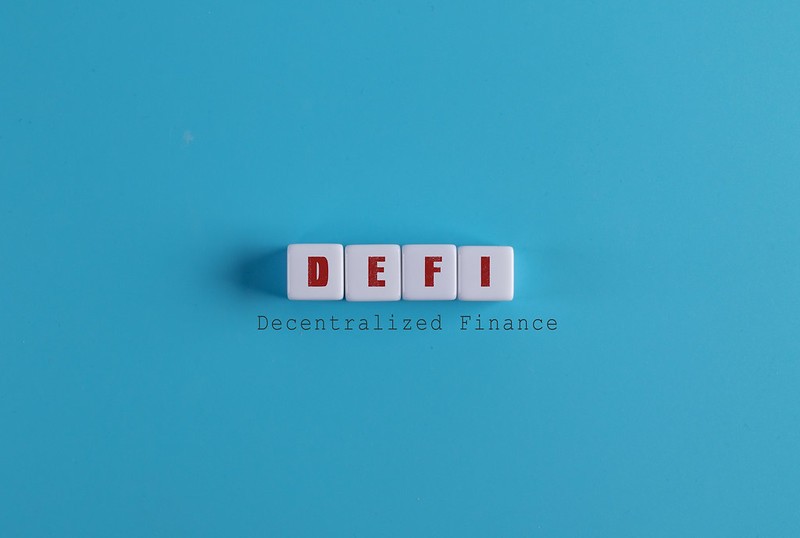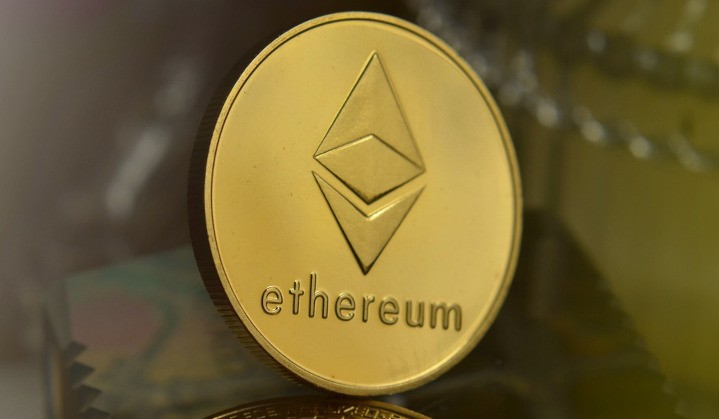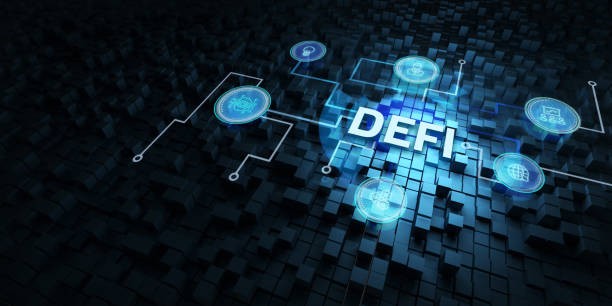Regulating the Unregulated Cryptocurrency Market: CeFi vs DeFi
Aug 02, 2022, 4:14pm
Crypto has been getting a lot of attention, but there’s another crypto-related technology gaining popularity — DeFi (decentralized finance).
The new service allows users to access their money without giving up control over how they use it or trust any third parties like banks with private information. It also means there are no limits on what you can do with your funds. In short, it turns cryptocurrencies into currencies for everyday transactions. So far so good? Not quite yet…
Celsius Issues: Issues with “CeDeFi”
The most popular example of DeFi right now is Celsius from San Francisco-based company Celesius Inc., which launched its mainnet less than two months ago. While the app itself isn’t complicated, some people have criticized the project for being too similar to other “stablecoin” projects such as MakerDAO. Stablecoins are digital tokens pegged 1:1 with real assets such as dollars or euros. This design choice makes them resistant to price volatility caused by high trading volumes. But critics say that while stablecoins may be more reliable than traditional currency, this approach does not solve centralization problems inherent in fiat banking systems. Some even argue that these coins could become just another tool used by big financial institutions to extract value at the expense of regular customers.
So why would anyone want to use DeFi? Well, many believe that DeFi offers significantly improved privacy, security, reliability, speed, cost efficiency, accessibility, transparency, accountability and user experience compared to existing payment solutions. Here’s a breakdown of how both DeFi and CeFi stack up against each other when considering those features.
DeFi vs. CeFi: Comparing decentralized to centralized finance
Decentralized Finance
Decentralized finance platforms offer several advantages over their centralized counterparts. For instance, they allow users to avoid censorship and surveillance attacks by government agencies. Furthermore, since blockchain technology enables data integrity and immutability, records cannot be changed once created. Unlike conventional organizations, where employees can make mistakes due to human error and lack of oversight, blockchains guarantee accuracy through cryptography and self-regulation.
Additionally, DeFi networks are usually run directly by community members, who receive rewards if they help keep the network running smoothly. Finally, unlike large companies, DeFi platforms tend to work 24/7 and never go offline.
While all major DeFi services currently operate online, only one out of three DeFi apps —
MakerDAO – Dai — is open source. Open Source Software | Open Source Development Foundation
Centralized Finance
As for centralized finance, modern bank accounts provide convenient ways to send payments between individuals and businesses worldwide. Banks charge fees for accessing their services, however, and can freeze your account if you fail to meet certain requirements. Moreover, centralized institutions have limited options to resolve disputes or implement changes to customer agreements. They also give clients little power to influence decisions made by financial managers.
Another drawback of using a regulated financial institution is that it ties your wealth to the performance of said entity. If the latter fails, you’re stuck with whatever losses were incurred. On top of that, there’s always a chance that regulators will decide to take away your savings and impose restrictions on future transactions. Lastly, regulatory compliance standards differ across regions, meaning that your local bank may be perfectly legal in one country, but illegal in yours.
DeFi risks and the Decentralization illusion
According to research conducted by the Wall Street Journal, around $2 trillion worth of consumer debt sits uncollected in US federal courts. That number alone should dispel the notion that we live in a post-financial crisis world. Unfortunately, the same report found that nearly half of Americans wrongly believed that central authorities such as governments and big tech firms play an active role in protecting consumers’ personal finances. Indeed, many people falsely assume that DeFi works similarly to how centralized finance functions. However, this view couldn’t be further from the truth.
Negative Effects of DeFi
On the downside, DeFi still suffers from several shortcomings and challenges unique to emerging technologies. Firstly, because of the nascent stage of the industry, DeFi protocols often don’t support every feature demanded by end users. Secondly, although many DeFi platforms come equipped with built-in mechanisms designed to prevent fraud and theft, they may fall victim to hacks and scams perpetrated by malicious actors. And finally, while DeFi provides greater flexibility and freedom for users, they typically require higher levels of technical expertise to set up properly.
DeFi is “Trustless”
Firstly, DeFi doesn’t rely on trusted intermediaries or gatekeepers acting as middlemen. Instead, it uses smart contracts written specifically for each transaction performed on it. As such, DeFi providers must ensure liquidity before opening markets to trade. Otherwise, users might get burned trying to exit positions prematurely. Also, since DeFi applications themselves are open source code, developers can audit their own software to verify that everything runs smoothly. Consequently, they can fix bugs faster than centralized organizations.
Secondly, thanks to transparent reporting and public auditing tools, DeFi users enjoy unprecedented control over their finances. Users can easily check whether their wallets actually contain the amount of funds that they deposited. At the same time, block explorers enable participants to see details about individual transactions including amounts sent and received, gas prices, contract hashes etc. All of this information is available publicly via APIs, making it easy to create competitive products and services based on DeFi protocol.
Thirdly, despite having fewer resources, smaller teams and shorter product development timelines, successful startups behind leading DeFi platforms regularly outperform established global conglomerates in terms of profitability and growth rate. For example, according to Coin Market Cap, Binance Labs recently became the largest shareholder of TrustToken after acquiring 72% of shares during Q3 2021. Meanwhile, Visa was ranked 11th among the biggest corporate holders of Ethereum Classic last year. Fourthly, DeFi users benefit from lower costs associated with capital expenditures required for infrastructure buildup. Since DeFi providers aren’t dependent on external sources of financing, they don’t need expensive office buildings, servers, and IT staff salaries. Rather, they invest solely in maintaining the platform’s core functionality.
Finally, DeFi application owners retain ownership of their assets in perpetuity. No single party controls access to sensitive metadata related to users’ identities and balances. Hence, they won’t face issues with identity verification and KYC procedures common to legacy banking systems.
Lastly, although DeFi protocols promise convenience and autonomy, they still require extensive training and education to understand how they function correctly. Many DeFi newcomers prefer learning about the nuances of blockchains rather than understanding complex concepts like collateralization and over-collateralization in relation to fractional reserves.
Despite its limitations, DeFi seems poised to disrupt legacy finance models. However, the success of the former hinges upon the ability of regulators to adapt quickly enough to mitigate potential threats posed by innovative DeFi innovations. Although a handful of jurisdictions are taking steps towards regulating DeFi, others continue to lag behind. Notably, following a series of scandals involving Facebook’s Libra coin, U.S. lawmakers introduced a bill aimed at preventing Facebook from launching any digital asset until regulations are put in place.
It remains unclear whether government policymakers will eventually embrace DeFi innovations by embracing regulation or vice versa. There’s certainly room for improvement regarding policymaking surrounding the space. It’s possible to get started and learn crypto today. https://cryptocrooks.com/best-crypto-products/





